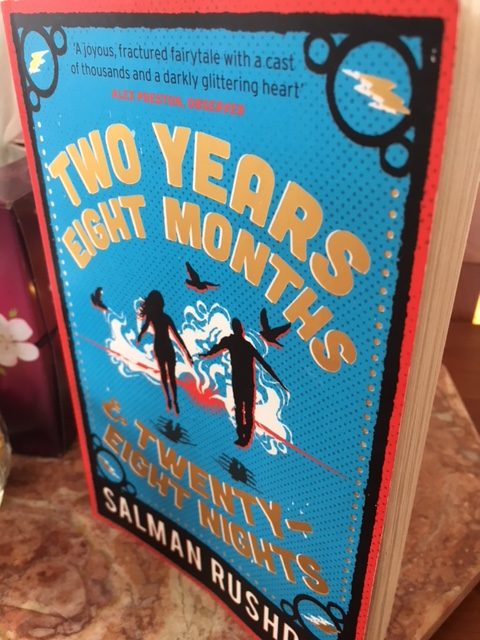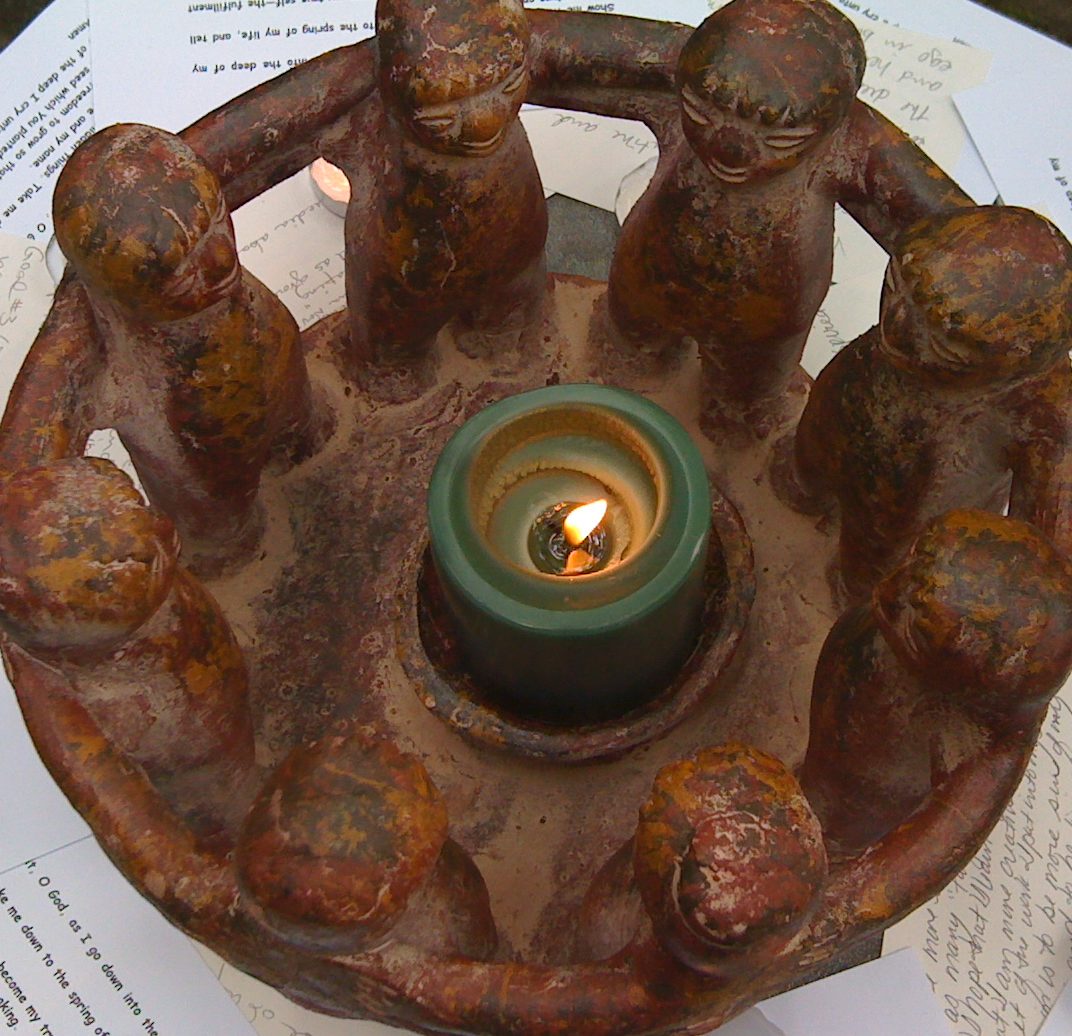
First Book: One Thousand and One Nights Worth of Questions
Dreams, Narrative, and The Meaning of Life
Two Years Eight Months and Twenty-Eight Nights, by Salman Rushdie. (2015, Penguin Random House)
In honor of the holiday season, a few weeks back, I had dinner with members of a writing group I belong to. We each brought a gift-wrapped book to swap, choosing our gift with wrapping in tact, so we each came away with a tome that we may or may not have otherwise chosen to read.
That is probably the only way that I would have cracked open Salman Rushdie’s Two Years Eight Months and Twenty-Eight Nights. (2015, Penguin Random House)
You’ll want to know what the book is about, so I’ll tell you that on the surface it is a fantasy novel about a war between two worlds, in this case fairyland, home to jinn (genies), and the lower world, where you and I exist.
The power of story
But it is also a book about the power—and sometimes the tyranny—of story. The two years, eight months and twenty-eight nights of the title add up to the 1,001 nights that Scheherazade evaded execution, by employing the power of story, or to be more specific, the power of the cliff-hanger, to save her life.
And, because the book did keep my interest to the end (despite some serious flaws) it was, not surprisingly, also about dreams, fantasy, and the imagination (i.e. characters cross from one world into another through a slit in the fabric of reality…much the way we slip between worlds each night when we dream). That, along with the embedded lectures about reason versus religion, the power of story as a force of both good and evil— kept me turning the page.
Not to mention, there was synchronicity at play: When I picked up the book, I’d already resolved that 2018 would be the year I think, write, and teach about the connections between dreams and story.
That’s because dreams show me that we are, at our cellular level, story makers. Our dreaming mind, withdrawn from the sensory stimulus of the outer world, turns inward to spin tales of horror, ecstasy, humor, and joy. Like the genie slipping free from the lamp, dreams may deliver our fondest wish, and also trick us into tangled nightmares. In this sense we are all story-makers when the lights go out—and not for a mere 1,001 nights, but for every night of our lives.
A question for the collective
Some of our internal stories make it onto the page, but most of them twirl endlessly, like a forgotten LP, in the background. Hidden behind the curtains of our conscious awareness, the stories of our lives are writing themselves, from the inside out—shaping our memories, fears, hopes, desires and beliefs. When we allow them to write themselves unconsciously, it is as if we have turned our will over to a capricious genie.
Which is a problem for the individual, and a catastrophe for the collective.
That’s because, our world runs on stories: mythology, religion, and literature affect our thinking, our morality, and our systems of law. They define how we love and who we are permitted to love and how we live at almost every level.
Mythology, religion, and literature are our collective dreams, drenched in symbolism, clothed in narrative, and inviting us to travel through time and space and try on different points of view. The stories we watch, read, and stream define how we see ourselves and the endings and outcomes we are capable of imagining—both individually and as a culture.
They can be our salvation, too—if we approach them consciously, knowing the power we hold in our hands when we write them, and the power they can have over us when we watch and read them.
If you think I’m overstating the case, remember that Rushdie himself was threatened with death and forced to live in exile because of a novel he wrote. Anytime a storyline threatens to lead the public toward a line of moral reasoning that threatens some religious or political institution’s purpose and power, censorship is wielded like a battle sword. But nighttime dreams continue to create narrative, and to tap into our infinite reserves of imagination–a super-power, each of us is born with, and which is intrinsic to who we are as human beings.
Diving into the dream
Since this intersection between dream and story is a theme that I’ve resolved to contemplate in 2018, Rushdie’s book has proved the perfect place from which to dive in.
But Rushdie manages to dissemble my banner-waving enthusiasm for both story and dream. Here he addresses the negative polarity of story:
“We are all trapped in stories … each of us a prisoner of our own solipsistic narrative, each family the captive of the family story, each community locked within its own tale of itself, each people the victims of their own versions of history, and there were parts of the world where the narratives collided and went to war, where there were two or more incompatible stories fighting for space on, so to speak, the same page.” (p. 112)
The stories we have spun and that are spinning themselves in our sleep and waking, can certainly catch us in their webs.
As for dreams, Rushdie spares nothing.

SPOILER ALERT: Stop reading here if you don’t want to know how this story ends.
The war between the worlds, which rages through nearly 300 pages of Rushdie’s book, ends with the slit between the the lower and higher realms being sealed shut. As a result, the people live happily ever after—except for one thing.
The victory over the dark forces, was also the conquest of the darkness within. And dreams were banished forever after:
“This is the price we pay for peace and prosperity, understanding and wisdom, goodness and truth: That the wildness in us, which sleep unleashed, has been tamed and the darkness in us, which drove the theatre of the night, is soothed.” p. 283
I had come all this way–for that! Let’s just say, I was devastated.
Ah, but Rushdie tells us, the longing for nightmares still lingers at the edges. A cliffhanger if ever I saw one. A sequel may yet be written.
Two Years Eight Months & Twenty-Eight Nights was an imperfect telling, for sure. But like a truly good story it peeled open layers of meaning and gave me at least 1,001 nights worth of nuance to contemplate.
Copyright 2018 Tzivia Gover
ZZZzzzZZZzzzZZZ
Speaking of books to read in 2018
My book The Mindful Approach to a Good Night’s Sleep is chock full of information and exercises to support you in sleeping and dreaming better. Order yours now and give yourself the gift of a good night of sleep & dreams!
